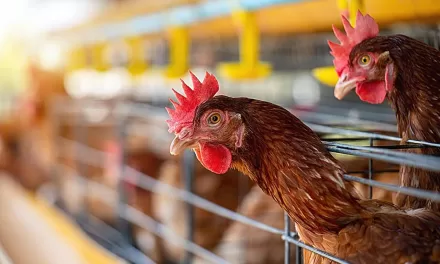The data on nutritional indicators are captured under the National Family Health Surveys (NFHS) conducted periodically by the Ministry of Health & Family Welfare. NFHS-4 was conducted in 2015-16 and a Comprehensive National Nutrition Survey (CNNS) was conducted in 2016-18. The data for malnutrition as per NFHS-5 is available for only 22 States/UTs.
As per NFHS-4, 35.7% of children under 5 years of age are underweight and 38.4% are stunted indicating a reduction from the previous data captured in NFHS-3 (2005-06), which reported 42.5% of children under 5 years of age as underweight and 48% stunted. As per the Global Hunger Index (GHI) Report 2020, the prevalence of stunting among children under 5 years of age is 21.3%. CNNS conducted in 2016-18 (under the aegis of the Ministry of Health and Family Welfare) shows that India has made substantial improvement in prevalence of stunting as the prevalence has further reduced from 38.4% as per NFHS-4 to 34.7%.
Further, as per NFHS-4, 22.9% of women (15-49 years of age) have chronic energy deficiency (BMI less than 18.5 kg/m2) which is a decline from the previous NFHS-3 (2005-06) levels which reported 35.5% of women having chronic energy deficiency.
The trends in wasting of children under 5 years has shown improvement and declined over the years from 21% (NFHS-4) to 17.3% (CNNS). As per the Global Hunger Index (GHI) Report 2020, the prevalence of wasting among children under 5 years of age is 6.9%.
POSHAN Abhiyaan was launched on 8th March 2018, with an objective to reduce malnutrition and achieve improvement in the nutritional status of Children from 0-6 years, Adolescent Girls, Pregnant Women and Lactating Mothers in a time-bound manner.
For alleviation of malnutrition, Government has announced Mission Poshan 2.0 to strengthen nutritional content, delivery, outreach and outcomes with a focus on developing practices that nurture health, wellness and immunity to disease and malnutrition. Steps have been taken to improve nutritional quality and testing in accredited labs, strengthen delivery and leverage technology under the ‘Poshan Tracker’, a robust ICT-enabled platform to improve governance with regard to real-time monitoring of provisioning of supplementary nutrition for prompt supervision and management of services.
The government has advised States/UTs to ensure that the quality of supplementary nutrition confirms to prescribed standards laid down under the Food Safety and Standards Act, 2006 and regulations made thereunder. States/UTs have been advised to promote use of AYUSH systems for the prevention of malnutrition and related diseases. A programme to support the development of Poshan Vatikas at Anganwadi centers to meet dietary diversity gap leveraging traditional knowledge in nutrition.











